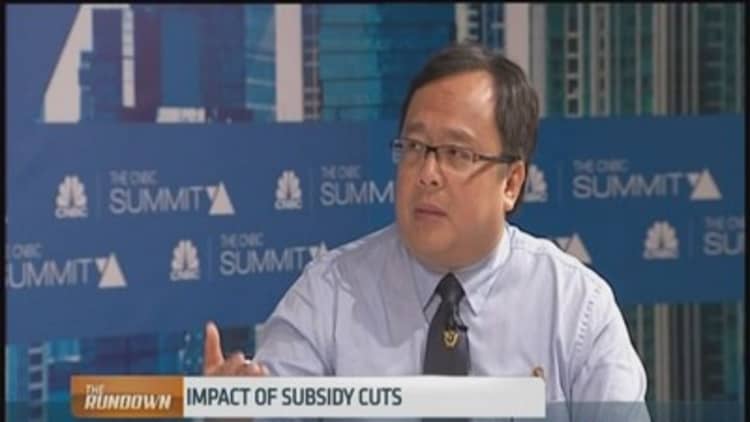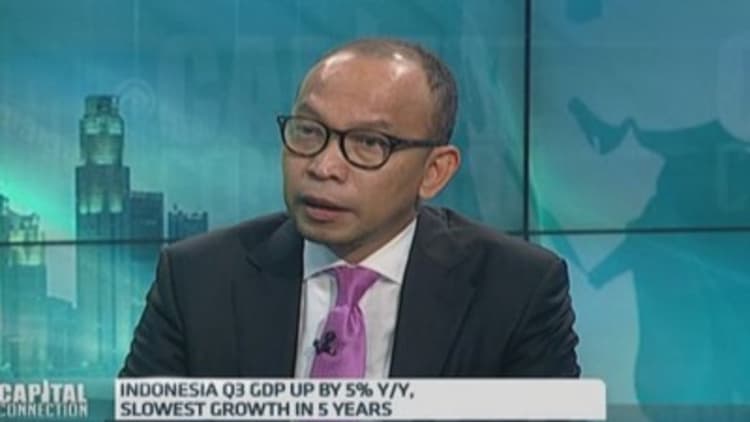
Cheap oil has given Indonesia flexibility with fuel subsidies, but the market's current rout won't last, according to the country's finance minister.
Speaking to CNBC in an exclusive interview this week, finance minister Bambang Brodjonegoro said oil's recent slump is "a price war," rather than a change in structural market conditions.
Read MoreDon't look for oil glut to end any time soon
"It's not sustainable; [oil] might be low maybe for a year... after that, I believe it will go back slowly to the normal price," he said.
Economists call oil's recent rout a boon for President Joko Widodo as it gave him breathing room to announce a smaller-than-expected fuel price hike last month. Widodo increased subsidized petrol prices by 2,000 rupiah ($0.16) in November, instead of an anticipated 3,000 rupiah ($0.25) hike.
Read MoreFuel inflation a risky juggle for this Asia heavyweight
Brent crude has tumbled over 40 percent since June and traded in a bear market since October amid a supply glut from the U.S. and OPEC (Organization of the Petroleum Exporting Countries) members.
In order to deal with volatile prices, Brodjonegoro says Indonesia plans to implement a fixed subsidy regime, with varying levels of price adjustments every month.
"[The new subsidy regime] will look at international oil prices but at the same time, we will give the subsidy for both the premium RON 88 fuel and the diesel fuel," he said.
Read MoreAs oil falls, here's where the big money is going
"Whether we are going to remove subsidies completely, it will remain the president's decision."
A double-edged sword
The Southeast Asian economy is set to become the world's largest oil importer by 2019, the Indonesia Petroleum Association (IPA) said on Tuesday. This means the government will be able to enjoy a lower bill for imported crude, a significant source of savings for a country struggling with economic growth at five-year lows.

However, finance minister Brodjonegoro warns that the picture isn't all rosy.
Read MoreIndonesia's fuel hike may put kibosh on 'fragile' tag
"Although we are no longer a net oil exporting country, we still get sizeable revenue from our oil. We get around 200-300 trillion rupiah depending on international oil prices but of course, in 2015 we anticipate revenue to decline quite significantly because we assumed $105 per barrel for 2015 at the original budget," he said.
The country produces roughly 800,000 million barrels per day and was ranked the world's 24th-largest crude oil producer last year, according to the U.S. Energy Information Administration. Indonesia hopes output will increase to 900,000 barrels per day in 2015.
"On the revenue side, we will definitely suffer," Brodjonegoro stated.
Read MoreCan Widodo manage 240 million Indonesians?
On Tuesday, IPA warned that oil's slump could cut energy spending by as much as 20 percent next year, which would hurt President Widodo's growth target of 7 percent. The industry group also said that certain energy projects are no longer economically viable with oil prices below $70 per barrel.
—CNBC's full interview with Bambang Bordjonegoro airs on television on December 13 at 8pm SIN/HK and December 14 at 9pm SIN/HK.


